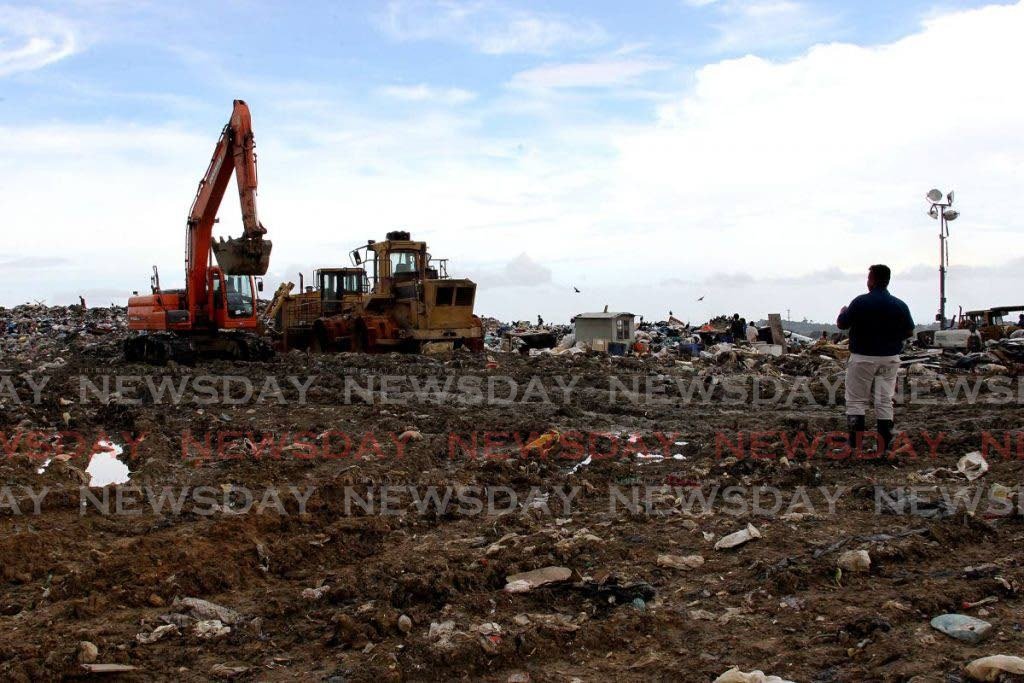Scavengers may oppose landfill upgrades

THE country’s landfills/dumps are occupied by some 200 scavengers, who may impede any upgrade of those sites.
This was reported to a forum on waste management at the Faculty of Engineering, University of the West Indies, St Augustine.
Solid Waste Management Company Ltd (SWMCOL) expert Shervon Ifill said, “Scavengers remain a challenge.”
Saying scavengers need to be formally incorporated into waste management, she hoped they could morph into new roles in recycling tyres and beverage containers.
“There are lots of opportunities to get into the formal (waste) sector.”
Ministry of Energy analyst Anita Hankey said scavengers may resist changes which upgrade the landfills, especially if they view these as interfering with their existing sources of income. She said they should be allowed to access new or alternative income streams.
The forum also heard of the amount of waste in TT and its effects.
Jordi Pon of the UN Environment Programme said the average TT citizen produces 1.4 kilogrammes of litter per day – not a figure ten times higher, as once wrongly reported.
The amount of waste generated has been rising in line with rising lifestyles. This level of waste is an unsustainable trend, he said, calling for resource recovery.
Pon said in the Caribbean, only 7.8 per cent of waste is recycled, the bulk ending up in landfills or as litter elsewhere.
In TT, less than ten per cent of waste is recycled, meaning 90 per cent of material is wasted.
Pon said the generation of more waste, which is of greater complexity, poses risks to islands with limited space and small populations.
Risks to human health include vector-borne diseases, environmental pollution such as harm to the seas, and economic impacts in areas such as fisheries and tourism. He called for education and training to combat all this.
Ministry of Planning permanent secretary Joanne Deoraj gave the feature address on behalf of minister Cherrie-Ann Crichlow-Cockburn. Quoting 2010 data, she said each year TT produces 700,000 tonnes of waste, a figure projected to double to 1.4 million tonnes by the year 2020. Deoraj did not say what the actual figure is in 2020. She lamented a paucity of data, but said that has not stopped the Government from acting on an integrated waste management system.
This includes a reduction in the toxicity and volumes of waste, prioritising reuse, recycling and source separation of different types of waste, including organic.
Deoraj said that by last December, the iCARE programme had set up 679 collection sites across Trinidad and collected 1,200,000 bags of material ,both recyclable and non-recyclable. She expected an exponentially growing waste stream to be generated by natural disasters such as floods and hurricanes.
Ifill urged citizens to separate out their household waste at source, an initiative she said could be encouraged by both financial incentives and a significant cultural change.
Hankey said waste-to-energy conversion can be done several ways, including incineration, although such a project in Huizhou, China was opposed by local people owing to an alleged lack of transparency and oversight.
She said an Inter American Development Bank (IDB) report had recommended an incinerator at the Beetham landfill.
Newsday asked if incineration would release the greenhouse carbon dioxide.
Moderator Ronald Roach replied that this carbon dioxide is a less harmful greenhouse gas than methane, which is produced by natural decomposition at landfills.

Comments
"Scavengers may oppose landfill upgrades"